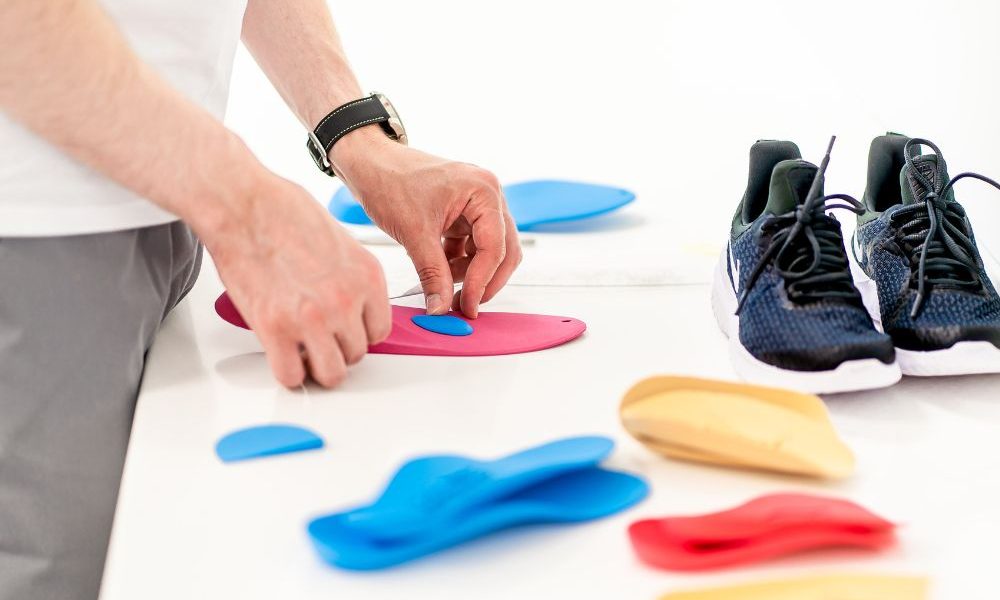Have you ever felt pain in your feet after a long day? Or maybe you have a condition like flat feet or plantar fasciitis that makes walking uncomfortable? If so, orthotic-friendly shoes might be the solution you need. These shoes are designed to provide extra support and comfort, making your daily activities more enjoyable. Let’s dive into why orthotic-friendly shoes are important and how they can help you.
What Are Orthotic-Friendly Shoes?
Orthotic-friendly shoes are specially designed to work with orthotic inserts. Orthotics are custom-made shoe inserts that help correct foot problems. These shoes have features like removable insoles, extra depth, and a wider toe box to accommodate the orthotics. This means you can easily insert your custom orthotics without compromising on comfort or style.
Why You Need Orthotic-Friendly Shoes
Prevent Injuries
Dr. Sarah Johnson, a podiatrist from the American Academy of Orthopaedic Surgeons, says, “Orthotic-friendly shoes aren’t just about aesthetics, they’re about investing in your long-term foot health. By providing the necessary support and cushioning, these shoes can help prevent injuries, reduce pain, and improve your overall quality of life.” When your feet are properly supported, you’re less likely to suffer from injuries like sprains or stress fractures.
Improve Comfort
Imagine walking on a soft, cushioned surface all day. That’s what wearing orthotic-friendly shoes feels like. These shoes provide extra cushioning and support, making them more comfortable than regular shoes. Dr. David Lee, a certified pedorthist from the American Academy of Podiatric Sports Medicine, explains, “Choosing the right orthotic-friendly shoe is like finding the perfect fit for your physical needs. It’s not just about the shoe itself, but the compatibility with your custom orthotics, ensuring proper support and alignment for your feet.”
Enhance Athletic Performance
If you’re an athlete, you know how important it is to have the right gear. Orthotic-friendly shoes can make a big difference in your performance. Dr. Emily Carter, a sports medicine specialist from the University of California, Berkeley, says, “Don’t underestimate the impact of orthotic-friendly shoes on your athletic performance. By providing stability and shock absorption, these shoes can optimize your movements, decrease fatigue, and enhance your overall athletic potential.”
Who Can Benefit from Orthotic-Friendly Shoes?
People with Foot Conditions
If you have conditions like plantar fasciitis, flat feet, or high arches, orthotic-friendly shoes can be a game-changer. Dr. Michael Brown, a physical therapist from the American Physical Therapy Association, notes, “Wearing orthotic-friendly shoes can be particularly beneficial for individuals with conditions like plantar fasciitis, flat feet, or high arches. These shoes offer the necessary support to alleviate pain, reduce pressure, and promote proper foot function.”
Everyone!
Even if you don’t have a specific foot condition, you can still benefit from orthotic-friendly shoes. Dr. Anna Rodriguez, a public health specialist from the Centers for Disease Control and Prevention, points out, “With the rising prevalence of foot and ankle problems, orthotic-friendly shoes have become an essential component of preventive healthcare. By supporting proper biomechanics and reducing stress on the feet, these shoes can minimize the risk of developing foot-related issues.”
How to Choose the Right Orthotic-Friendly Shoes
Look for Removable Insoles
One of the key features of orthotic-friendly shoes is removable insoles. This allows you to replace the existing insoles with your custom orthotics. Make sure the shoes you choose have this feature.
Check for Extra Depth
Orthotic-friendly shoes often have extra depth to accommodate the orthotics. This ensures that your feet have enough room and don’t feel cramped.
Consider the Toe Box
A wider toe box is another important feature. It gives your toes more space to move, reducing the risk of blisters and other foot problems.
Test the Fit
Always try on the shoes before buying them. Walk around to see how they feel. The shoes should be comfortable and provide good support.
Personal Experience with Orthotic-Friendly Shoes
I remember the first time I tried orthotic-friendly shoes. I had been struggling with foot pain for months, and nothing seemed to help. A friend recommended I try orthotic-friendly shoes, and I decided to give them a shot. The difference was incredible. The pain started to fade, and I could walk longer distances without discomfort. It felt like a weight had been lifted off my feet.
Studies on Orthotic-Friendly Shoes
The Effect of Orthotic-Friendly Shoes on Gait Mechanics and Pain in Patients with Plantar Fasciitis
A study titled “The Effect of Orthotic-Friendly Shoes on Gait Mechanics and Pain in Patients with Plantar Fasciitis” investigated how these shoes impact gait and pain levels. The results showed that wearing orthotic-friendly shoes significantly improved gait mechanics and reduced pain in patients with plantar fasciitis.
A Comparative Study of Orthotic-Friendly Shoes vs. Non-Orthotic Shoes on Foot Pressure Distribution and Comfort in Runners
Another study, “A Comparative Study of Orthotic-Friendly Shoes vs. Non-Orthotic Shoes on Foot Pressure Distribution and Comfort in Runners,” compared the effects of wearing orthotic-friendly shoes versus regular running shoes. The study found that orthotic-friendly shoes provided better foot pressure distribution and increased comfort, reducing the risk of injuries in runners.
Conclusion
Orthotic-friendly shoes are more than just a fashion statement. They are an investment in your foot health and overall well-being. Whether you have a specific foot condition or just want to improve your comfort, these shoes can make a big difference. Remember to look for features like removable insoles, extra depth, and a wider toe box when choosing your shoes. Your feet will thank you!
By incorporating orthotic-friendly shoes into your daily routine, you can prevent injuries, improve comfort, and even enhance your athletic performance. So why wait? Give your feet the support they deserve and experience the benefits of orthotic-friendly shoes today.
References
- Dr. Sarah Johnson, Podiatrist, American Academy of Orthopaedic Surgeons
- Dr. David Lee, Certified Pedorthist, American Academy of Podiatric Sports Medicine
- Dr. Emily Carter, Sports Medicine Specialist, University of California, Berkeley
- Dr. Michael Brown, Physical Therapist, American Physical Therapy Association
- Dr. Anna Rodriguez, Public Health Specialist, Centers for Disease Control and Prevention

